April Fool’s Day is here yet again, but the ongoing research and clinical trials are no joke at all. Here’s what’s happened in March.
LEAF News
Team and activities
 Stephanie Dainow Speaks at Rejuvenation Startup Summit 2024: Stephanie Dainow, Executive Director of Lifespan.io was a speaker at Rejuvenation Startup Summit 2024, where she gave a talk about how to make longevity mainstream.
Stephanie Dainow Speaks at Rejuvenation Startup Summit 2024: Stephanie Dainow, Executive Director of Lifespan.io was a speaker at Rejuvenation Startup Summit 2024, where she gave a talk about how to make longevity mainstream.
Springtime and a Time for Growth in the Rejuvenation Field: Spring is in the air if you are in the Northern Hemisphere, and in the theme of new growth, let’s see what the Lifespan.io team has been up to recently. This growth included the rejuvenation space as a whole and the technologies that go into making interventions possible.
Interviews
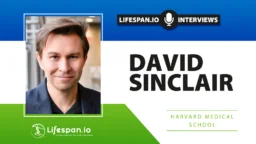 David Sinclair Hopes Rejuvenation Possible in a Few Decades: In this new interview, the famous David Sinclair, Harvard professor and the author of “Lifespan”, explains his theory of aging, shares parts of his health routine, and reveals which directions in today’s aging research excite him.
David Sinclair Hopes Rejuvenation Possible in a Few Decades: In this new interview, the famous David Sinclair, Harvard professor and the author of “Lifespan”, explains his theory of aging, shares parts of his health routine, and reveals which directions in today’s aging research excite him.
Journal Club
This Journal Club is on a paper demonstrating that noninvasive 40 Hz stimulation promotes 40 Hz neural activity in multiple brain regions and attenuates pathology in mouse models of Alzheimer’s disease. This is a subject close to our heart, as Dr. Medvedik and Lifespan.io are working on developing the Mindset project.
Advocacy and Analysis
Hard Science and Long-Shot Ideas Meet in Vitalia: Vitalia, the longevity pop-up city that came into being earlier this year on the island of Roatan off the coast of Honduras, was a first-of-its-kind event. We are happy to present a roundup of the talks from the longevity biology conference held in Vitalia on the 23rd and 24th of February.
Research Roundup
 Ultra-Processed Food Linked to Numerous Health Risks: A new massive umbrella review of epidemiological meta-analyses reinforces the idea that ultra-processed food is bad for most aspects of human health.
Ultra-Processed Food Linked to Numerous Health Risks: A new massive umbrella review of epidemiological meta-analyses reinforces the idea that ultra-processed food is bad for most aspects of human health.
Using Ultrasound to Assist Gene Therapy: A new publication in iScience has described a novel way in which heart tissue can be encouraged to accept a gene therapy by using ultrasound to create cavitation bubbles that open gaps in the cells.
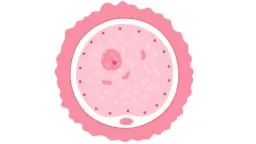 Decreasing Autophagy Might Reverse Ovarian Aging: Experimenting in vitro and in mice, scientists have found that ovarian aging is linked to increased autophagy and apoptosis in granulosa cells and that it can be reversed by an estrogen receptor inhibitor.
Decreasing Autophagy Might Reverse Ovarian Aging: Experimenting in vitro and in mice, scientists have found that ovarian aging is linked to increased autophagy and apoptosis in granulosa cells and that it can be reversed by an estrogen receptor inhibitor.
Intermittent Rapamycin Lessens Negative Effects in Mice: A recent Molecular Metabolism paper dives into the differences between intermittent and chronic rapamycin treatment and its differential impact on male and female mice. Constant rapamycin use has been documented to have several negative side effects.
 Looking for Safety in Epigenetic Rejuvenation: In Nature Communications, Ali Yücel and Vadim Gladyshev have published a review of the current state of the art in partial cellular reprogramming, detailing what this technology does and how it might be used safely.
Looking for Safety in Epigenetic Rejuvenation: In Nature Communications, Ali Yücel and Vadim Gladyshev have published a review of the current state of the art in partial cellular reprogramming, detailing what this technology does and how it might be used safely.
High Protein Consumption May Drive Atherosclerosis: A new study suggests that increased protein intake, specifically of the amino acid leucine, can exacerbate atherosclerosis by inhibiting autophagy in macrophages. The protein we get from food is indispensable, as it allows us to produce our own proteins, but the ideal amount of dietary protein remains an open question.
 Reprogramming Cells to Research Aging: Instead of using cellular reprogramming to directly treat age-related diseases, a perspective published in Nature Communications focuses on the opposite: using reprogrammed cells to form aged tissues and organoids on which to conduct experiments.
Reprogramming Cells to Research Aging: Instead of using cellular reprogramming to directly treat age-related diseases, a perspective published in Nature Communications focuses on the opposite: using reprogrammed cells to form aged tissues and organoids on which to conduct experiments.
Senolytic Activity of Drug-Polyphenol Combinations: The authors of a paper published in Pharmaceuticals tested multiple drug-polyphenol combinations to find the ones with the best senolytic properties. They believe cellular senescence can be a therapeutic target for such conditions as chronic obstructive pulmonary disease (COPD) and idiopathic pulmonary fibrosis (IPF).
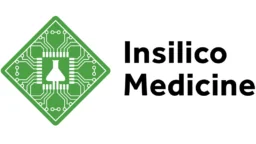 InSilico Shares Details on AI-Generated Drug Candidate: In a new paper, InSilico has reported on its impressive success with a drug against idiopathic pulmonary fibrosis that was created by artificial intelligence “from A to Z” and is currently in Phase 2 trials.
InSilico Shares Details on AI-Generated Drug Candidate: In a new paper, InSilico has reported on its impressive success with a drug against idiopathic pulmonary fibrosis that was created by artificial intelligence “from A to Z” and is currently in Phase 2 trials.
Controlling a Protein to Stop Obesity: In GeroScience, researchers have described how turning off a specific protein prevents mice from getting obese in old age. Hypoxia-inducible factors (HIFs) are a collection of three proteins that are sensitive to oxygen, and they normally activate when a cell is operating in a low-oxygen environment. The target protein dampens these factors.
 Study Suggests 14 Existing Drugs Increase Human Lifespan: Scientists have used a huge database of human beings to find links between existing drugs and human lifespan. Only 14 of more than 400 showed a positive correlation.
Study Suggests 14 Existing Drugs Increase Human Lifespan: Scientists have used a huge database of human beings to find links between existing drugs and human lifespan. Only 14 of more than 400 showed a positive correlation.
A Small Molecule to Restore the Liver: In Cell, a team of researchers, including the founders of the biotech company HepaRegeniX, has published a paper on HRX215, a molecule that encourages liver regeneration. The liver has a “nearly unlimited regenerative potential” under healthy circumstances.
 Caloric Restriction in Primates Leads to Gut Changes: In a recent Nature Communications paper, the researchers investigated changes in weight, metabolism, and microbiome that resulted from periodic restricted feeding in non-human primates. Caloric restriction, which limits the amount of calories an organism consumes, is a widely known lifespan-extending intervention in laboratory animals.
Caloric Restriction in Primates Leads to Gut Changes: In a recent Nature Communications paper, the researchers investigated changes in weight, metabolism, and microbiome that resulted from periodic restricted feeding in non-human primates. Caloric restriction, which limits the amount of calories an organism consumes, is a widely known lifespan-extending intervention in laboratory animals.
Epigenetic Memory Might Underlie Multiple Sclerosis: In an in-depth paper in Nature, researchers have explained how astrocytes, helper cells that provide crucial brain functions, epigenetically remember things in a way that encourages inflammation. Long-lived immune cells, including T cells and B cells, can remember foreign pathogens, but this memory is sometimes negative.
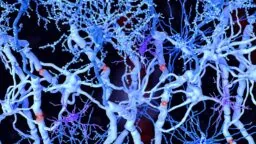 Glial Cells and Neurons Mutate Differently: In Cell, researchers have published a paper outlining the different ways in which brain cells slowly mutate with aging. Cells accumulate mutations with aging, including brain cells. However, most previous research into these mutations has been on neurons rather than the glia, the helper cells of the brain.
Glial Cells and Neurons Mutate Differently: In Cell, researchers have published a paper outlining the different ways in which brain cells slowly mutate with aging. Cells accumulate mutations with aging, including brain cells. However, most previous research into these mutations has been on neurons rather than the glia, the helper cells of the brain.
An Experimental Brain Protector May Fight Obesity: According to a paper published in Aging, a fisetin derivative that is being investigated for brain protection may also be effective in controlling glucose and ameliorating obesity. Repurposing a repurposed compound CMS121, the focus of this study, was created by modifying fisetin, a flavonol that is well known for its effects against cellular senescence.
 Natural Senotherapeutics that Mimic Dasatinib: Scientific Reports has published a study that used a computational approach to identify natural senotherapeutics that have a similar impact on gene expression as a known senotherapeutic drug, dasatinib.
Natural Senotherapeutics that Mimic Dasatinib: Scientific Reports has published a study that used a computational approach to identify natural senotherapeutics that have a similar impact on gene expression as a known senotherapeutic drug, dasatinib.
Popular Antioxidants Don’t Work Against Bone Loss in Mice: In Aging, researchers have published negative results on the long-term use of methylene blue and mitoquinone (MitoQ), two popular antioxidants, to sustain bone health in mice. Oxidative stress and bone health Previous work has found that oxidative stress, which is commonly associated with age-related disease and damage, is related to bone diseases.
 Restoring Lymphoid-Myeloid Balance Boosts Immunity in Mice: A new study suggests that depleting a subset of stem cells that overproduces myeloid cells can rescue age-related immunosenescence. Immunosenescence, the gradual decline in the immune system’s abilities, is one of the hallmarks of aging. Moreover, many scientists view it as one of the most consequential processes of aging.
Restoring Lymphoid-Myeloid Balance Boosts Immunity in Mice: A new study suggests that depleting a subset of stem cells that overproduces myeloid cells can rescue age-related immunosenescence. Immunosenescence, the gradual decline in the immune system’s abilities, is one of the hallmarks of aging. Moreover, many scientists view it as one of the most consequential processes of aging.
News Nuggets
Lowering the Bar to Invest in Longevity: Maximon, Marcuard Heritage, and GenTwo have announced the launch of a new longevity-related investment opportunity. Their proposal allows professional investors to get access to Maximon’s portfolio of longevity companies via an actively managed certificate (AMC). According to Maximon, there have been many requests to launch an AMC focused on longevity.
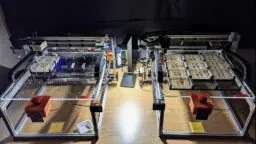 How to Test One Million Molecules: Ora Biomedical has created a robot for high-throughput screening of life-extending compounds in worms, and you can buy an experiment for 100 dollars. WormBot automates simple experiments in C. elegans, allowing for high-throughput small molecule screening.
How to Test One Million Molecules: Ora Biomedical has created a robot for high-throughput screening of life-extending compounds in worms, and you can buy an experiment for 100 dollars. WormBot automates simple experiments in C. elegans, allowing for high-throughput small molecule screening.
First Transplantation of a Pig Kidney into a Human: After a total of 69 rejection-preventing gene edits, history has been made with the first-ever successful transplantation of a pig kidney into a human patient. Organ transplantation has been one of modern medicine’s biggest triumphs, helping to save innumerable lives. It is also viewed as one of the pathways to life extension.
 Hevolution Foundation Announces $20 Million Investment: Hevolution announced its investment of $20 million (SAR 75,000,000) as the lead investor for a $50 million (SAR 188,000,000) Series A financing extension in Aeovian Pharmaceuticals. Hevolution’s investment will advance promising therapies that target the mTORC1 biological pathway, helping find solutions to major unmet medical needs including neurological diseases and other diseases of aging.
Hevolution Foundation Announces $20 Million Investment: Hevolution announced its investment of $20 million (SAR 75,000,000) as the lead investor for a $50 million (SAR 188,000,000) Series A financing extension in Aeovian Pharmaceuticals. Hevolution’s investment will advance promising therapies that target the mTORC1 biological pathway, helping find solutions to major unmet medical needs including neurological diseases and other diseases of aging.
Coming Up
11th ARDD Meeting Announces Speaker Lineup: This year, ARDD has an incredibly exciting program with global thought-leaders sharing their latest insights into aging and how they target aging, ensuring everyone lives a healthier and longer life. ARDD is proud to be a partner of XPRIZE Healthspan, a 7-year, $101 million global competition to revolutionize the way we approach human aging.



